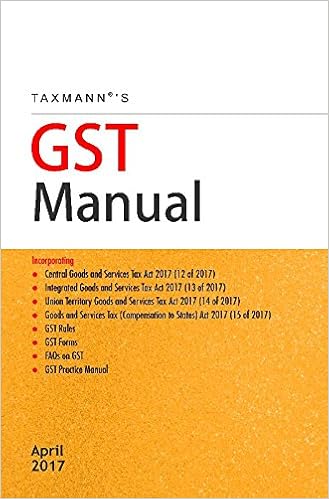GST Planning Tips before GST Act of India Comes into force
we are giving few GST Planning Tips before notified GST act 2017 of India i.e CGST Act 2017 , IGST Act 2017 , UTGST Act 2017 and SGST act 2017 comes into force . For more tips keep reading Taxheal.com – GST update India
Plan for Cost Reduction: – GST credit will be available for purchased from all India ((Except State of Jammu & Kashmir) .Accordingly businessmen, can search for new vendors from different states and reduce the costs.
Delay Purchase of Office Equipments etc :- Under present system (Before GST in India) Input Tax Credit is available only on goods used in or in relation to manufacture
But under GST Input Tax Credit is available; be it used for manufacture or not, like office equipment, stationery etc. subject to the condition that it is used in the furtherance of business. Thus businessmen can think delaying of purchasing the office equipments and other non cenvatable purchases to post GST regime in order to take the credit.
Advance Payments Planning: – GST will be payable on Advance payment for purchase of goods or services. Therefore Advance payments needs to be planned so that GST liability is minimum.
Don’t delay Payments under GST :- Interest, late fee and penalty charged for delayed payment of consideration is to be included in valuation for the purpose of calculation of GST.
Deal only with Good Vendors :-Complete matching of GST paid by Recipient is required with the Supplier to avail Input Tax Credit under GST. If tax is not paid by the seller then the tax credit will not be available to the buyer . Therefore businessmen should assess the potential vendors with non-compliant record and restrict purchases from them.
In GST the Invoice should be received before 30th September after the end of FY to avail the credit.
Stock Transfer : GST will be levied on supply to agents, Inter -state Branch transfer and transfer to different vertical within same state but having different registration. Therefore Businessmen needs to plan his warehouses /Branches in such a way that his funds/working capital is not blocked in payment of GST before final sale to Consumers
Decide Place of Supply : – Place of supply is to be checked to identify Whether CGST and SGST or IGST is to be charged, considering place of supply provisions of GST Act. Thus businessmen needs to check his sale strategies to gain under GST regime.
Don’t Purchase from unregistered dealer :- under GST has to be paid under Reverse charge ( by the recipient ) on all purchases made from unregistered dealers and on other goods as notified. If you decides to deal with unregistered dealer under GST regime , then be ready to do all compliances of GST under reverse charge.
Adjust pricing of Goods and Services:- Anti-profiteering measure has been introduced in GST to ensure that credit is passed on to the final consumer. Thus businessmen needs to check for pricing of goods and services to cater anti profiteering.
Be ready for Audit Cost :- GST Audit is required to be conducted by a Chartered Accountant or Cost Accountant for each registration having turnover above the turnover limit of Rs. 1 Crore.
Ready for eWay bill preparation – Now eWay bill is required in case of any transportation of goods when the consignment value is over Rs.50,000/- irrespective of whether the goods are moved within or outside state.
Send Goods with Invoice:- under present system material could be sent over challan without Invoice. After GST Invoice is to be raised in all cases before or at the time of removal of goods except in certain specified circumstances. Section 31 Tax invoice of CGST Act 2017
Renegotiate Contracts – GST is going to immensely impact the existing contracts where tax is inclusive in the contract price. Therefore businessmen needs to renegotiate contracts with various parties.
Inventory Planning :- After GST, Inventory accounting needs to to be strengthened so that there is no issue in taking GST input tax credit based on receipt of goods or services.
Record Keeping Planning : -After GST Records are to be kept at each registered place of business be it electronically or in hard format
Accounts Planning :-
- Payment mechanism needs to be aligned as per GST law because there needs to pay GST on Advance Payments also.
- Billing patterns, formats and time lines need to be realigned in view of the provisions of GST.
- Maintenance of running accounts and payment settlement to be looked at to ensure the adjustment of payment at invoice level.
Registration Planning under GST : -Businessmen needs to plan for Registration Places of Business for GST so that places of business for which registration is required to be obtained could be minimised and unnecessary compliance burden could be ruled out. Requirement to have Multiple Business Verticals needs to be analysis, looking at the provisions of the GST law so that it can be decided whether it would be beneficial to take separate registrations of such verticals.
If you have any thought on GST Planning Tips, share by Comment below



